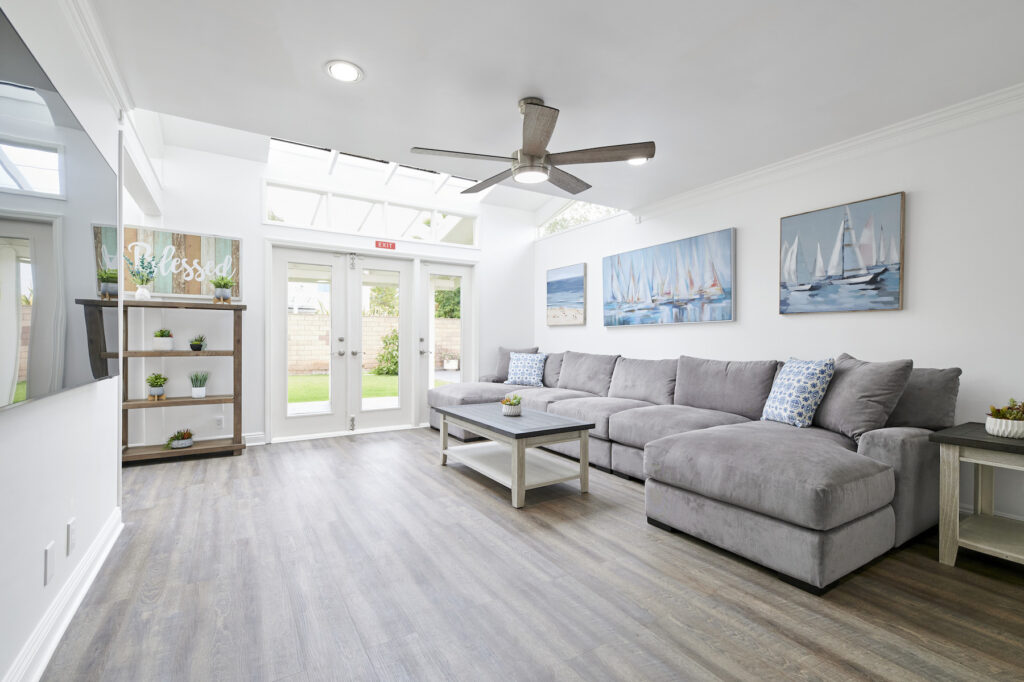Hydrocodone products were the most abused prescription painkillers in 2022, according to NSDUH 2022 (National Survey on Drug Use and Health). The abuse potential of hydrocodone stems from the pain-relieving and euphoric effects it triggers.
While addiction to hydrocodone can be challenging and intrusive, it is eminently treatable. Read on to learn more about hydrocodone rehab and find out how to connect with compassionate and evidence-based treatment for opioid addiction.
Hydrocodone Addiction Treatment
Addiction to hydrocodone is described clinically as opioid use disorder. Opioid use disorder is a chronic and relapsing brain disorder that’s incurable but treatable. Addictions are characterized by compulsive substance use regardless of adverse outcomes, leading to problems in all areas of life.
The most effective hydrocodone addiction treatment is personalized, with the duration and intensity of treatment contingent on the severity and duration of the addiction, co-occurring mental health conditions, and personal variables. That said, most hydrocodone rehab centers use a similar framework for treatment.

Supervised medical detox
Treatment usually begins with supervised hydrocodone detoxification. Opioid withdrawal involves the presentation of symptoms like fever, sweating, muscle aches, and intense urges to use opioids. Medical detox provides a structured and safer alternative to abrupt discontinuation, often integrating MAT (medication-assisted treatment) to reduce withdrawal discomfort and cravings.
MAT (medication-assisted treatment)
MAT can also be beneficial during ongoing treatment for hydrocodone addiction. FDA-approved medications like methadone, buprenorphine, and naltrexone can help mitigate cravings and block euphoria from opioid use, so promoting ongoing abstinence from hydrocodone. MAT is always most effective when combined with talk therapies and counseling.
Talk therapies
Common talk therapies used to treat hydrocodone addiction include:
- CBT (cognitive behavioral therapy): CBT is a form of psychotherapy that helps people identify and modify negative thought patterns, and also to create healthier coping mechanisms.
- DBT (dialectical behavior therapy): DBT is a sub-type of CBT that was originally developed to treat BPD (borderline personality disorder) but is now used to treat mental health conditions and addictions. DBT helps people improve distress tolerance, emotion regulation, and mindfulness.
Motivational therapies
Motivational therapies like CM (contingency management) incentivize abstinence with rewards for reaching milestones like clean drug tests, aiming to reinforce positive behavior changes.
Counseling
Most hydrocodone rehabs offer both individual and group counseling. One-to-one sessions enable people to explore the root causes of their addictions with a trained therapist. Group sessions allow individuals to benefit from the support of peers undergoing similar experiences.
Holistic treatments
The best rehabs typically supplement evidence-based hydrocodone addiction treatments with holistic therapies for a whole-body approach to recovery. Options may include mindfulness, meditation, yoga, fitness classes, and art therapy.
Finding The Best Hydrocodone Rehab Centers
Finding the right hydrocodone rehab center requires careful research and consideration. Start by looking for accredited facilities with certifications from reputable health care organizations to maximize the chance of high treatment standards.
Assess the qualifications and background of the medical staff. Ensure that the team includes board-certified addiction specialists, mental health professionals, and experienced medical personnel.
Inquire about the center’s approach to treatment. The most effective programs offer a blend of medical detox, individual and group therapy, and evidence-based modalities like MAT and CBT.
Consider the patient-to-staff ratio, as a lower ratio often means more personalized attention and tailored care.
Evaluate the center’s aftercare support, which is a core component of long-term recovery from opioid addiction. This can include follow-up appointments, support groups, and outpatient services.
Visit the centers, if possible, to get a firsthand sense of the environment. This can help you determine if the setting feels supportive and if the staff are compassionate and professional.
Finally, review the center’s payment options. Ensure that they accept your insurance or offer a financial plan that suits your budget, as financial strain should not be a barrier to receiving help.
By thoroughly vetting potential rehab centers, you can find a place that not only meets your recovery needs but also feels like a supportive and encouraging environment for the beginning of your journey to long-term recovery.
What to Expect at Hydrocodone Rehab
At hydrocodone rehab, individuals can expect a structured, supportive environment dedicated to their well-being and recovery. The initial assessment is thorough, considering medical history, substance use patterns, and mental health. This evaluation is used to develop a customized treatment plan. The initial days usually focus on detoxification, with around-the-clock care to manage withdrawal symptoms safely and comfortably.
When individuals transition from detox to ongoing treatment, they will engage with a variety of therapeutic modalities designed to address the psychological aspects of opioid addiction. This includes a combination of individual counseling, where personal issues are explored in depth, and group sessions, which provide social support and the opportunity to learn from the experiences of peers facing similar issues.
People will learn about addiction and recovery through educational sessions, developing an understanding of the factors that contribute to substance abuse and the skills necessary for dealing with life’s stressors without resorting to opioid use. Life skills workshops are also beneficial, equipping people with practical tools to handle daily challenges without substance use.
Effective hydrocodone rehab always includes a comprehensive aftercare plan, which may involve ongoing therapy, support groups, and, if needed, transitional arrangements like sober living housing.
The ultimate goal of hydrocodone rehab is not only to stop substance use but also to build a sustainable pathway to recovery, ensuring that each person is prepared to lead a fulfilling life, free from dependence on opioids.
Does Insurance Cover Hydrocodone Rehab?
Since 2010 and the enactment of ACA (Affordable Care Act), all health insurance providers have been obliged to provide coverage for addiction treatment.
If you feel that you require hydrocodone addiction treatment and you need to check your insurance coverage, use our free service right here. alternatively, call 800-994-2184 any time.

Get Treatment for Hydrocodone Addiction at Gratitude Lodge
Hydrocodone was one of the medications associated with the beginning of the U.S. opioid epidemic. Abuse of hydrocodone remains a pressing issue today, so reach out to Gratitude Lodge if you need help moving beyond opioid addiction.
Take advantage of our supervised hydrocodone detox program to withdraw from opioids safely and comfortably at one of our treatment centers in Newport Beach or Long Beach, CA.
During ongoing inpatient treatment, you can engage with personalized treatments that may include:
- Talk therapy
- MAT (medication-assisted treatment)
- Motivational therapy
- Group therapy
- Family therapy
- Individual counseling
- Holistic therapies
- Aftercare planning
Start addressing hydrocodone addiction right away by calling 800-994-2184.



























